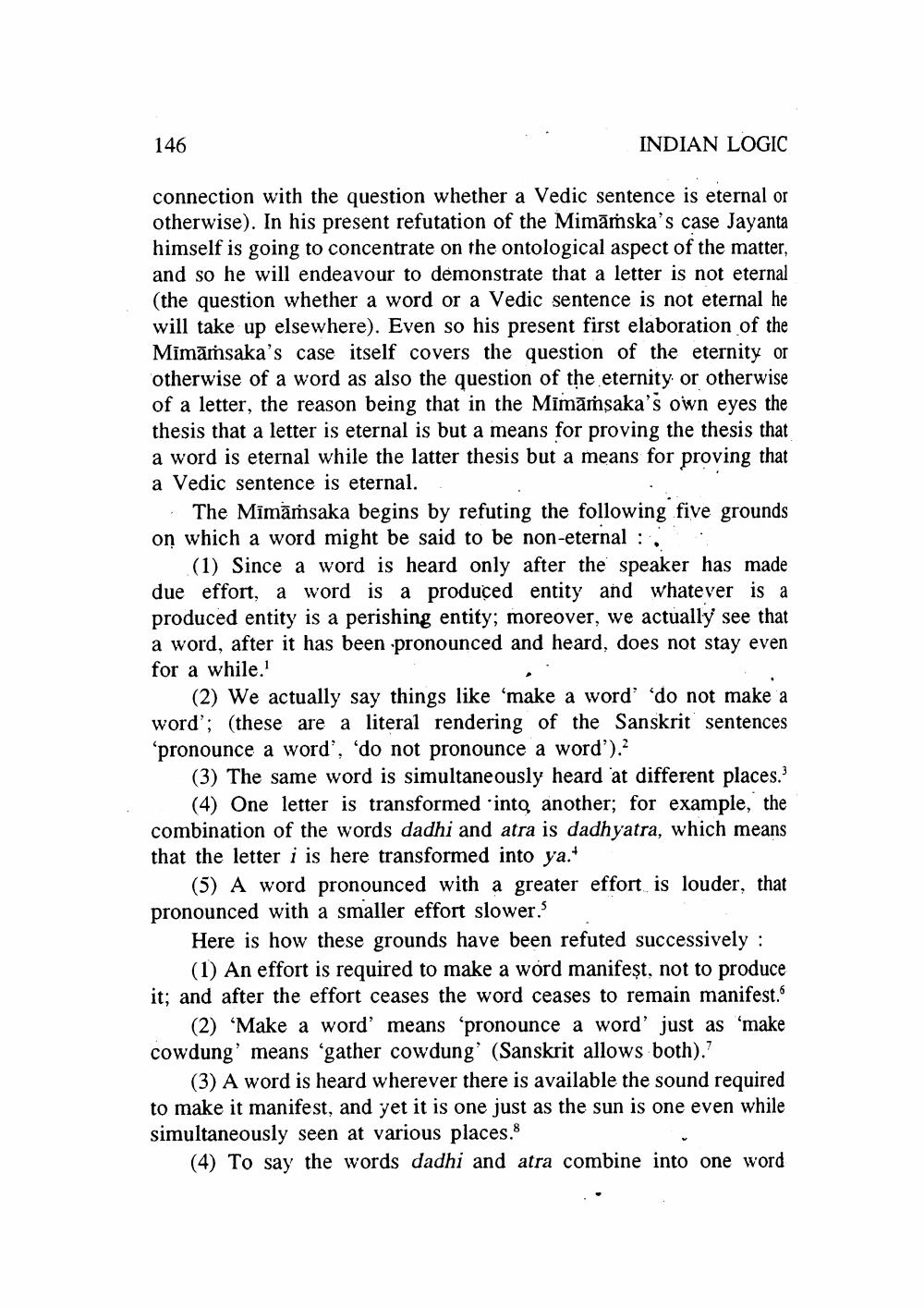________________
146
INDIAN LOGIC
connection with the question whether a Vedic sentence is eternal or otherwise). In his present refutation of the Mimāṁska's case Jayanta himself is going to concentrate on the ontological aspect of the matter, and so he will endeavour to demonstrate that a letter is not eternal (the question whether a word or a Vedic sentence is not eternal he will take up elsewhere). Even so his present first elaboration of the Mimāmsaka's case itself covers the question of the eternity or otherwise of a word as also the question of the eternity or otherwise of a letter, the reason being that in the Mimāṁsaka's own eyes the thesis that a letter is eternal is but a means for proving the thesis that a word is eternal while the latter thesis but a means for proving that a Vedic sentence is eternal.
The Mīmāmsaka begins by refuting the following five grounds on which a word might be said to be non-eternal :
(1) Since a word is heard only after the speaker has made due effort, a word is a produced entity and whatever is a produced entity is a perishing entity; moreover, we actually see that a word, after it has been pronounced and heard, does not stay even for a while.
(2) We actually say things like 'make a word' do not make a word'; (these are a literal rendering of the Sanskrit sentences ‘pronounce a word, do not pronounce a word').?
(3) The same word is simultaneously heard at different places.'
(4) One letter is transformed into another; for example, the combination of the words dadhi and atra is dadhyatra, which means that the letter i is here transformed into ya.'
(5) A word pronounced with a greater effort is louder, that pronounced with a smaller effort slower.
Here is how these grounds have been refuted successively :
(1) An effort is required to make a word manifest, not to produce it; and after the effort ceases the word ceases to remain manifest.
(2) 'Make a word' means 'pronounce a word' just as 'make cowdung' means 'gather cowdung' (Sanskrit allows both).
(3) A word is heard wherever there is available the sound required to make it manifest, and yet it is one just as the sun is one even while simultaneously seen at various places.
(4) To say the words dadhi and atra combine into one word




